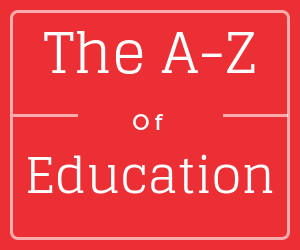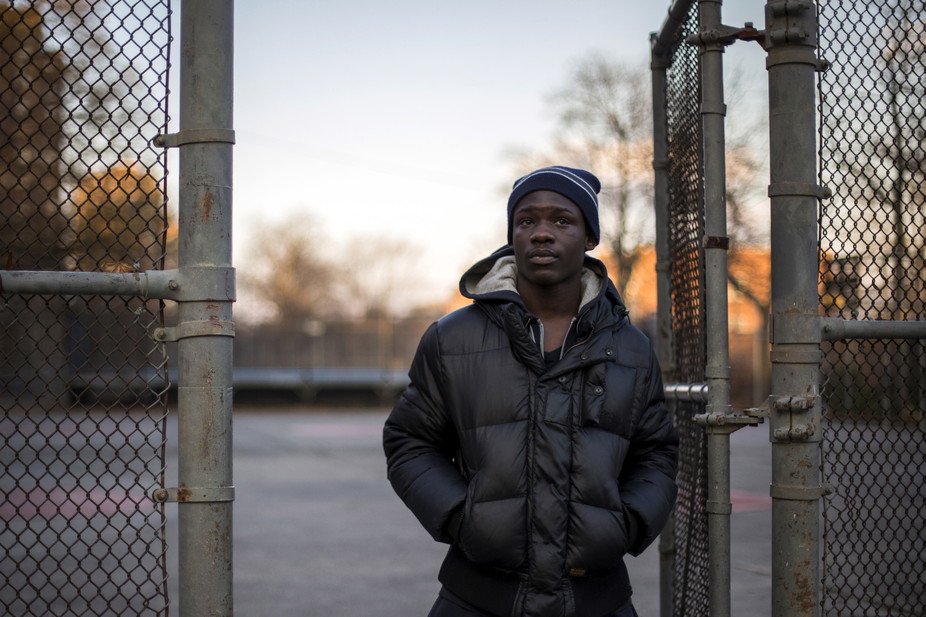Are Teachers Playing a Rigged Game?

Teachers in America have a high workload, are expected to transform their students’ lives, and have to navigate a larger—often broken—ecosystem at the same time. In other words, teachers are expected to be superheroes. But is this expectation realistic, or is it setting teachers up for failure?
What’s a superstar teacher?
Calculus is such a hard subject for students to learn, and it’s not one that many are enthusiastic about.
But that obstacle didn’t stop Jaime Escalante, whom the movie Stand and Deliver is based on. In this Edward James Olmos classic, he takes control of a class of dropout-prone students. He keeps them in school and teaches them some of the toughest topics. He takes this class of Hispanic working-class students and gets them to raise their expectations about their capabilities in school.
Erin Gruwell also did what it took to help her students succeed. So much so, that she also had a film based on her career as well. In the film Freedom Writers (2007), her dedication also leads to a compassionate understanding of her underprivileged students, and she achieves the ultimate breakthrough when she informs them that they aren’t the first young people besieged by problems. Although she is not permitted to use The Diary of Anne Frank as teaching material in her classroom, she does precisely that, at her own expense. She also buys notebooks for her students and encourages them to keep diaries that she would only read if they permitted her to do so. Needless to say, breaking all the rules once more allows her to become an exceptional teacher whom her students come to love.
Thanks to movies like these, the idea of the superstar teacher is everywhere. A teacher who is truly passionate about his job will do whatever it takes to make all of his students succeed—no matter how few resources he has or what background his students come from, right?
Wrong.
I do believe in the power of teachers, both positive and negative, on their students. I train educators for a living and have written books about following “the calling” to become a teacher. I do think that teachers make a difference – but I cannot put all of my faith in these “superstar teachers” to reform the education system the way that is truly needed.
I think it is unfair to count on, or to blame, teachers solely for the performance of their students. Am I saying that teachers should not be at all accountable for their students’ success? Of course not. But placing the burden solely on the teachers’ shoulders will lead to problems.
What do we expect from teachers?
We expect teachers to be the primary influencers of student performance
We have seen a sharp rise in the number of states that have turned to teacher-evaluation systems based on student test scores. The rapid implementation has been fueled by the Obama administration making the teacher-evaluation system mandatory for states who want to receive the Race to the Top grant money or receive a waiver from the 2002 federal education act, No Child Left Behind. Already the District of Columbia and thirty-five states have placed student achievement as a significant portion in teacher evaluations. Only 10 states don’t necessitate student test scores to be factored into teacher evaluations.
These teacher-evaluation systems have drummed up controversy, and rightly so. A study published in Educational Evaluation and Policy Analysis is the latest in a number of forms of research that cast doubt on whether it is feasible for states to evaluate teachers based partially on student test scores. Research shows us that little to no correlation between high quality teaching and the appraisals these teachers are given.
Sure, it’s important for students to be exposed to high quality teachers. But is it fair to subject teachers to tough standards based on how students test?
We expect great teachers to be flexible and widely available
A gifted teacher is a wonderful thing.
Superstar teachers can’t be everywhere, all at once, which relegates them to a small student population that benefits from the talent.
That’s why some school districts are trying to change this—by spreading the talent of superstar teachers beyond their own classroom walls.
Nashville Public Radio reports that schools in the area are experimenting with moving highly-effective teachers between classrooms and having them serve as mentors to other teachers while impacting students. The idea is for these hand-picked educators to show through action how their teaching methods work and for that model to inspire the other teachers in the classrooms. NPR reports that school districts in New York, North Carolina and Tennessee are also experimenting with this style of mentorship.
On the positive side, sharing the wealth when it comes to superstar teachers means more educators and students benefit from that talent.
But on the other hand, part of the reason these teachers are so effective is because they have the time needed to mold a particular group of students. Bouncing teachers from one classroom to another might affect the impact they have on their students.
We expect teachers to put in a lot of time
American teachers spend more hours in the classroom than their peers across the globe, according to an education report from the Organization for Economic Co-Operation and Development (OECD). The report outlines the state of education in the world’s most developed countries.
The report shows that American elementary school teachers spend more hours teaching students than any other country surveyed. American middle and high school teachers spend more time educating students than peers in every OECD country except Chile. In addition to classroom time, US teachers are also required to be at school more hours than their international peers.
Despite the long hours, teachers in America aren’t compensated well, explains OECD director of education and skills Andreas Schleicher. The pay, compared to other countries, is competitive in the US; however, it lags behind that of other American workers with college educations.
The OECD report shows American teachers see smaller salary increases than their foreign counterparts; in the most recent year surveyed, the average teacher with 15 years of experience saw a salary increase of 32.6 percent. The US average was just 26.6 percent.
What happens when we expect too much?
Teachers don’t come to school
A study from the National Council on Teacher Quality looked at teacher attendance for over 234,000 teachers in 40 districts during the 2012-13 school year. Teachers in the U.S’s largest school districts missed an average of 11 days, and 16 percent of teachers missed 18 days or more.
Kate Walsh, president of the Washington think tank that advocates for teachers says, “Big city school districts are striving to improve student achievement, yet they seem to forget one of the most basic aspects of teacher effectiveness; teachers being on the job regularly, teaching kids.”
Nancy Waymack chimes in, “Teacher absences affect student achievement. No matter how engaging or talented they are, teachers can only have an impact if they are in the classroom.”
The cities with the lowest average absences include Milwaukee, Indianapolis, Louisville, Tampa and Washington, D.C. The highest teacher absences occur in Columbus, Cleveland, Nashville, Portland, Oregon and Jacksonville.
The study was based on a 186-day school year and did not factor in long-term absences for maternity or paternity leave or serious illnesses.
Absences also cost a lot of money. The 40 districts spent around $424 million to pay substitute teachers.
It was also noted that districts with formal policies to discourage teachers from missing school do not appear to have higher attendance rates over schools without policies in place.
Nobody wants to teach anymore
A study from the Center for American Progress in July found that slow salary growth is a contributing factor to the high turnover rate. Research shows that 13 percent of teachers leave the profession or take a position at a new school every year.
How can teachers perform at their best?
Even though placing the weight of the world on teachers’ shoulders doesn’t do any good, great teachers are important.
Here’s how to help great teachers become more effective than most of us ever thought possible.
First, recognize other factors
For one thing, the schools that desperately need some sort of superstar saviors are often unable to attract them. In a study on urban schools and poverty released by the National Center for Education Statistics, urban administrators said that they had difficulty attracting and retaining high-quality teachers. This observation, coupled with the fact that schools with higher percentages of students living in poverty had less resources available for teaching, is a recipe for disaster when it comes to counting on these “superstars” to close the achievement gap, lift standardized test scores and increase graduation rates. These urban schools are the very places that need all of those factors to happen to improve student achievement and the long-term overall quality of life in those communities. So if the answer falls solely on strong teachers, these places are in a lot of trouble.
The root of issues in classrooms that tend to cause the most problems for students (like poverty and ill-equipped or uninvolved parents) should be the target of any true reform. Teachers come and go, moving from school to school or on to different careers. Strong programs that address equality in education and focus on social issues at the root of learning challenges are what will truly make an impact on what students learn and retain, and whether those students succeed.
Secondly, respect the teaching profession
Most patriotic Americans agree education should be the most important issue in the country. After all, a country that lacks knowledge lacks power…. right? Common sense tells us that in order to secure a thriving future for our nation’s children, we must become high achievers in the areas of math, reading and science. Unfortunately, the collective concern for education continues to wane. Maybe that’s why education in the United States is considered average when compared to the rest of the world.
According to the Pew Research Center, education ranks among the public’s top ten policy priorities, coming in at number six. At first glance, this may seem impressive, but Pew also reports that in general, Americans have a declining interest in education. Not surprisingly, the economy, job creation and terrorism are the public’s top three priorities, and there’s no question each would have grave consequences if not addressed. While most agree these topics should be focal points of interest, however, many argue the public has lost sight of what should matter most: education.
The reality is our country is guilty of becoming increasingly apathetic about education. As a rule, teachers are grossly undervalued; their significance is continually diminished and their contributions go highly underrated. The majority of school teachers love what they do and consider themselves blessed to be afforded the opportunity to make a difference in the life of a child. Their profound impact on the world of academia, and their willingness to sacrifice high-paying salaries should be applauded. But at what point do we, as Americans, stand up and say that our treatment of teachers is simply unacceptable? When do we decide that a number six priority ranking for education is not good enough – and that our students and teachers mean more to our collective society than that?
The real reason to respect the teaching profession
Here are some facts you may find alarming: according to data collected by the Programme for International Student Assessment (PISA), the performance of American students as compared to their international equivalents is mediocre at best. PISA is an international study that evaluates education systems worldwide every three years. This involves testing the skills and knowledge of 15-year-old students in more than 70 participating countries/economies.
Scores from the 2009 PISA assessment reveal the U.S. performs about average in reading and science and below average in math. Some of the top performers on the PISA evaluation were Hong Kong, Australia, Japan, New Zealand, South Korea, Finland, Shanghai in China, Singapore and Canada. Out of 34 participating countries, the U.S. ranked 14th in reading, 17th in science and 25th in math. These statistics are staggering.
As reported by the McGraw-Hill Research Foundation, a recent study conducted by the Organization for Economic Cooperation and Development (OECD) suggests that if the U.S. could boost its average PISA scores by 25 points over the next 20 years, it could lead to a gain of $41 trillion for the U.S. economy over the lifetime of the generation born in 2010. Therein lies the solution to every major problem facing the American people — including the economy, job creation and terrorism awareness.
Based on research provided by Dr. Steven Paine, a nationally renowned American educator, the OECD has offered a number of simple and practical lessons to the United States. According to Paine, money is not the answer to boosting our country’s international educational status, nor will it bring about a greater classroom experience. In studying the world’s highest achievers — Finland, Singapore and Ontario, Canada — Paine suggests our lack of respect for teachers is the nation’s number one enemy of education. “The major difference between those systems and the one in the U.S. had to do with how teachers are valued, trained and compensated,” he noted.
Paine stated in his report to the OECD, “In Finland, it is a tremendous honor to be a teacher, and teachers are afforded a status comparable to what doctors, lawyers and other highly regarded professionals enjoy in the U.S.” The report also suggested the teaching profession in Singapore “is competitive and highly selective, [a country] that works hard to build its own sense of professional conduct and meet high standards for skills development.” The study of Ontario revealed similar findings.
Paine insists, “The U.S. must restore the teaching profession to the level of respect and dignity it enjoyed only a few decades ago. This will not be easy, particularly in the current economic environment with states and localities strapped for funds. But improving the regard with which teachers are held is not principally about how much they are paid.”
Paine continued, “OECD countries that have been most successful in making teaching an attractive profession have often done so by offering teachers real career prospects and more responsibility as professionals — encouraging them to become leaders of educational reform. This requires teacher education that helps teachers to become innovators and researchers in education, not just deliverers of the curriculum.”
The report concluded that the U.S. has the resources and talent to compete more effectively and raise its level of educational achievement.
Speaking of showing respect, here’s one obvious way to do that.
Remember that in America, teachers are paid less than most other college-educated specialized professionals.
An obvious solution is to reward teachers for their hard work. Pay teachers appropriately.
This can be difficult for schools that don’t have much money. A major mistake made by reform groups is to table efforts at improving teacher salaries because the expenditure does not fit into the school budget. If children are America’s most precious commodity and the focal point of the nation’s educational system, then the lack of funding is no excuse to forgo efforts. Many school reform efforts are cost-effective and can be implemented by resourceful educators. When there is a lack of money, change is contingent upon the faith and commitment level of the faculty and staff. Money should not be wasted on model programs and unsubstantiated trends.
Considering factors such as teachers’ professional development, while at first may seem unrelated, can be a key factor for successfully improving teaching salaries as well. When analyzing budgets, it is important to set aside money to hire teachers with the ability to create and teach in-service professional development programs. The ability to train the staff and educators internally will save the school money, and will give the teacher/expert a feeling of usefulness. For instance, a teacher with 30 years of experience and a demonstrated ability to obtain amazing results from her specific teaching strategies might create a professional development seminar to share her expertise. This saves the school an enormous amount of money, and saves the administrator the trouble and cost of hiring a consultant. These savings can then be passed on to the teachers, perhaps in the form of bonuses, etc.
In the end, schools operating with limited funds to support reform efforts will need to be both resourceful and creative in order to affect positive change and strive toward equitable pay for superior teachers. Forward thinking leaders, committed and imaginative teachers, and a supportive community can contribute to change that improves the working environment of our teachers – and their salaries too.
The most important solution of all: Don’t wait for superman
As referenced in the documentary, Waiting for Superman, the American educational system is not living up to its potential. Comparisons with other developed countries show that the strongest nation in the world is falling behind academically. Even with the tremendous changes taking place since No Child Left Behind was enacted, serious problems still exist. For example, the cost per pupil in the U.S. has soared to five times the level in the 1950s, after adjusting for inflation. With this kind of money being pumped into the system, why are our school systems in the state that they are? This is a common problem with any bureaucratic monopoly.
Statistics, and common sense born of observation, tell us that the biggest crisis in our schools is finding ways to educate students in low-income areas. However, as Waiting for Superman illustrates, our educational problems are not limited to poverty-stricken areas alone. As Lesley Chilcott, producer of the Waiting for Superman documentary put it, “The dirty little secret… is that middle- and upper-class communities are suffering as well.
When we talk about U.S. students ranking twenty-fifth in math, we’re not just talking about underserved communities, we’re talking overall.” Yet, despite decades of knowing that these problems exist, little improvements are being made. Of course, everyone wants to improve our system; they just do not seem to know how to do it.
The American public must feel that educational reform is a top priority issue in these times of severe economic troubles. Today, people are concerned about their jobs and putting food on the table. Upgrading education, although theoretically important, can hold a low priority to the more pressing problems of keeping a roof over their heads. The paradox here is that this is precisely the time to make that investment into education. When times are tough, workers need to improve their skills to compete effectively in the marketplace. Education can provide those skills.
Furthermore, those enhanced skills and improved technological talents are going to be desperately needed in the future as America continues to struggle in the 21st century labor force. Production is not getting easier and simpler. In fact, it is just the opposite. The skills needed in the world marketplace require a better education and improved, and more advanced abilities. Planning to turn out workers for the factories of today is a crucial element, but those same workers also need to be able to adapt to technologies that are just now being developed. Workers taught in an educational system that is subpar will not only hurt them and their families; it will cripple America’s competitiveness.
Educational reform will occur once we decide that enough is enough and make the commitment change happen no matter what it takes. When America realizes all children deserve a stellar education regardless of where they are from, who their parents are, or what their socioeconomic status is, we will be able to reform our educational system. Americans have to stop treating minority students in underperforming urban environments like collateral damage.
The disheartening reality is that America has billions of dollars to fight a two-front war, but cannot or will not properly educate its children. If a hostile country attacked America, it would take less than 24 hours for American troops to be mobilized into battle. However, we seem unable to mobilize a sea of educated teachers and administrators to wage war against academic mediocrity, which is a bigger threat to our national security than Iran or North Korea.
Waiting for Superman has been criticized as being against teachers unions, placing blame too squarely on the shoulders of educators, and misrepresenting educational statistics. However, the film also shined a bright spotlight on the harsh reality of our educational system, showing the exodus of middle and upper class children from our public schools, the sadness of the lottery system for what are perceived as the best schools, and the general hopelessness that some have about our educational system.
One segment of Waiting for Superman illustrates American self-confidence through an image of kids doing daredevil bike stunts, and then crashing. This shows that while our students seem to have confidence, they do not have the skills to actually succeed. As a nation we rank behind more than 20 other developed countries when it comes to teaching math and science. Our own deep probing into our educational system has repeatedly revealed serious problems; yet, perhaps we did need such a documentary to bring it back to the forefront of people’s thoughts. Certainly, Waiting for Superman has served as a stark reminder of just how bad our educational system has become, and just how ineffective most of our efforts at improving it have been.
The American educational system has reached a turning point, a time when things seem at their most dire…and yet some simply sit idly by “Waiting for Superman.”
What Americans need to do is to realize that all of us are Superman. We all need to have a hand in saving our educational system, perhaps without the flashy heroics and cape. Rather than waiting, every educator, educational leader, government official, parent, and citizen needs to educate themselves about the problems that exist in our educational system. Each of us needs to understand the deficiencies in our educational system, and stop placing blame. Rather, we must come together with an understanding that “Superman” is not coming to save our children, and it is up to us to work together to find innovative ways to rise to the challenge of fixing our educational system. The future must be planned for now! It certainly will not be an overnight process; however, by taking steps one at a time, an enormous amount of ground can be covered in the coming years.






